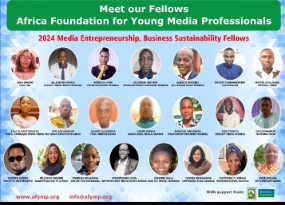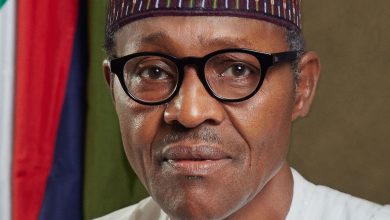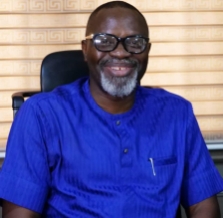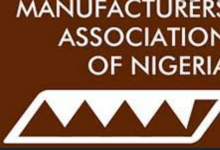
Fidelity Bank deepens push for non-oil exports through FNITCC platform
CITIZENS COMPASS—Nigeria’s diversification drive has gathered momentum in recent years as government initiatives push to reduce dependence on crude oil and strengthen non-oil sectors as engines of growth. From the Central Bank of Nigeria’s RT200 programme to incentives offered by the Nigerian Export Promotion Council (NEPC), the country has implemented policies designed to encourage exporters, boost foreign exchange inflows, and integrate local enterprises into global value chains.
Complementing these efforts, Fidelity Bank Plc has steadily positioned itself as one of the private-sector leaders advancing the country’s non-oil export agenda. Through its flagship initiative—the Fidelity Nigeria International Trade & Creative Connect (FNITCC), the bank has built a global platform that links Nigerian exporters with international buyers, diaspora markets, and strategic investors.
For a country where oil revenues remain vulnerable to global shocks, FNITCC is more than a corporate innovation. It is a deliberate tool to help Nigeria unlock new streams of foreign exchange, strengthen small businesses, and showcase the creativity and resilience of its people to the world.
Beyond commodities: A broader vision
The design of FNITCC reflects Fidelity’s conviction that Nigeria’s future global competitiveness lies not only in raw commodities but also in value-added goods and services. The expo has created space for agriculture and consumer-packaged goods, but equally for sectors such as fashion, cosmetics, fintech, and the wider creative economy.
The federal government has also increasingly emphasized the need for value addition rather than the mere export of raw commodities. A recent policy directive on shea butter, for instance, underscores this shift by encouraging local processors to refine and package the product before it leaves Nigeria. The move aligns with broader industrialisation and job-creation objectives, while ensuring that the country captures more value across the production chain—a goal that platforms like FNITCC are now helping to actualize by connecting these upgraded products to international markets.
FNITCC events are immersive and deliberately multi-sectoral.
They combine product exhibitions, breakout sessions, diaspora investment panels, curated workshops, art displays, and even theatrical and fashion performances. The aim is clear: to connect the breadth of Nigerian enterprise to global markets, while ensuring that exporters are able to meet international standards and access the finance required to scale.
In a statement announcing this year’s FNITCC, Fidelity Bank’s Managing Director and Chief Executive Officer, Dr. Nneka Onyeali-Ikpe, said: “Since 2022 when we hosted the maiden edition, FNITCC has evolved beyond a platform for promoting Nigeria’s non-oil exports to become a veritable showcase of the immense value Nigeria has to offer the global market.”
London to Houston to Atlanta: Showcasing Nigeria on the global stage
The FNITCC journey began in London in November 2022. Hosted at the Novotel London West, the inaugural event drew more than 100 exhibitors and 90 speakers, attracting over 1,000 daily attendees. It unlocked trade and investment deals worth about $250 million, validating the proposition that Nigerian businesses could compete abroad if given the right exposure and institutional support.
A year later, the platform moved to Houston, Texas a city known for its energy base but also home to one of the largest Nigerian diaspora communities in the United States. FNITCC Houston, held in October 2023, attracted over 160 Nigerian and U.S.-based businesses across fintech, commodities, fashion, agriculture, and creative industries. The highlight was a landmark $40 million pre-export finance facility in favour of JohnVents Industries, one of Nigeria’s fast-rising cocoa exporters. The facility, arranged by Afreximbank with Fidelity Bank as the local administrative agent, demonstrated how trade promotion could be matched with access to finance to deliver real outcomes for exporters.
This month, September 18-20, 2025, FNITCC is heading to Atlanta, Georgia. The choice is deliberate: Atlanta has become a hub for Black entrepreneurship, cultural exchange, and diaspora investment in the United States. Its large Nigerian and African diaspora population provides a ready market for ethnic and value-added products, while its robust chambers of commerce and international trade networks make it an attractive gateway for exporters. Fidelity is also partnering with Amplify Africa, the organizers of AFRICON, one of the largest African diaspora business and culture summits in the U.S., to amplify the reach of this edition.
By situating FNITCC in Atlanta, Fidelity Bank is tapping into a dynamic U.S. market and aligning with diaspora-led networks that can act as long-term anchors for trade and investment flows.
Onyeali-Ikpe added: “As part of our commitment to developing platforms that promote economic growth, creativity, and sustainable trade both within Nigeria and internationally, we are pleased to announce the third edition of FNITCC. Since 2022, when we hosted the inaugural edition, the FNITCC expo has been at the heart of driving global market access for local businesses, and I am delighted that this year we will be in the city of Atlanta, USA.”
Consolidating success and expanding scope
Between the London and Houston editions, FNITCC generated a consolidated deal pipeline of over $500 million. For Nigeria, where non-oil exports are still under $5 billion annually, this is a significant achievement. It demonstrates the potential of structured, private-sector-led platforms to complement government diversification policies with measurable outcomes.
FNITCC Atlanta is expected to attract more than 3,000 participants—including exporters, U.S. buyers, policymakers, investors, multinational corporations, and development finance institutions. Programming highlights include B2B matchmaking sessions, policy dialogues, diaspora investment roundtables, and sector-specific workshops. Strategic sectors in focus will include agriculture, consumer goods, energy transition minerals, fashion, beauty, and creative services.
By positioning exporters side-by-side with financiers, regulators, and global buyers, FNITCC provides the missing ecosystem Nigerian businesses often lack when venturing into foreign markets.
Nigeria’s FX Outlook and the case for diversification
The timing of Fidelity’s intervention could not be more strategic. The naira has shown greater stability in recent months, supported by a mix of policy reforms and improving inflows, helping to restore investor confidence in the broader economy. With global attention once again turning to Nigeria’s vast potential, this is an opportune moment to deepen non-oil export growth.
The long-term case remains clear: as the world transitions away from fossil fuels, Nigeria cannot afford to depend solely on crude oil revenues. Building new, resilient export pillars is essential to sustaining growth, creating jobs, and securing foreign exchange inflows that are less vulnerable to commodity price swings.
FNITCC sits at the heart of this shift. By showcasing value-added goods, creating structured access to global markets, and linking exporters to international buyers, the platform helps convert Nigeria’s comparative advantages into tangible competitiveness. In doing so, it strengthens the broader diversification drive while reinforcing the growing sense of economic optimism.
A shared path to diversification
Ultimately, what makes FNITCC unique is its ability to bring together policy, finance, and culture under a single umbrella. It complements government-led initiatives and continental frameworks like AfCFTA by giving exporters practical exposure to international markets. It also addresses the financing gap through partnerships with institutions such as Afreximbank, ensuring that deals struck at the expos are not just ceremonial but backed by capital. And by spotlighting Nigeria’s creative and service industries, fashion, fintech, music, and art, FNITCC underscores the country’s growing soft power as a source of foreign exchange in its own right.
In this way, FNITCC is more than an exhibition; it is a platform for national transformation. It embodies the collaboration between government policy and private initiative, while providing exporters the tools to compete on a global stage. From London to Houston and now Atlanta, it has grown into an institution that is helping Nigeria move closer to the long-held dream of economic diversification, reinforcing optimism that the non-oil sector can become the bedrock of a more resilient, export-led economy.







